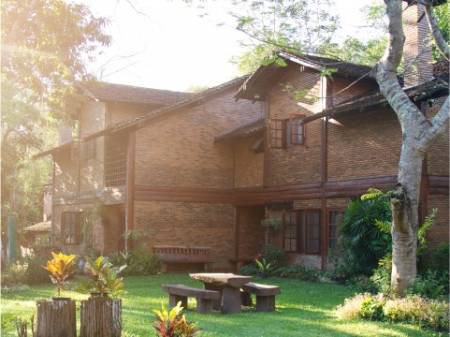Don't Buy or Sell a Condo without Knowing These Deadlines
Buying or selling a condo?
It’s easy to get caught up in the excitement of your transaction.
As such, many people are completely oblivious of the protections afforded to them when buying.
Because of their complexity, condo transactions have some built-in rules and regulations that don’t exist in other transactions.
These rules and regulations can serve as “parachute chords” to pull if/when needed.
They can be used by a skilled REALTOR to craft aggressive, winning offers in a competitive environment while at the same time affording a buyer the most protections and removing stress.
The two dates you need to know are “7 Days from Receipt” and “14 Days from Closing.”
We’ll revisit those in a second.
First, understand that when you purchase a condo, you have a legal right to review the condo documents related to a specific building and unit.
You MUST be provided the following with regards to the condo you are buying….
I. A COPY OF THE DECLARATION
II. A COPY OF THE BY-LAWS
III. A COPY OF THE RULES AND REGULATIONS OF THE CONDOMINIUM
IV. A RESALE CERTIFICATE
The resale certificate must contain…
A statement disclosing the effect on the proposed conveyance of any right of first refusal or other restraint on the free alienability of the unit, other than any restrain created by the unit owner.
A statement of the amount of the monthly common expense assessment and any unpaid common expense or special assessment currently due and payable from the selling unit owner.
A statement of any other fees payable by the unit owner to the council of unit owners
A statement of any capital expenditures approved by the council of unit owners or its authorized designee planned at the time of conveyance which are not reflected in the current operating budget included in the certificate.
The most recently prepared balance sheet and income and expense statement, if any, of the condominium.
The current operating budget of the condominium, including details concerning the amount of the reserve fund for repair and replacement and its intended use, or a statement that there is no reserve fund.
A statement of any judgments against the condominium and the existence of any pending suits to which the council of unit owners in a party.
A statement generally describing insurance policies provided for the benefit of the unit owners; a notice that the policies are available for inspection stating the location at which they are available, and a notice that the terms of the policy prevail over the general description.
A statement as to whether the council of unit owners has knowledge that any alteration or improvement to the unit or to the limited common elements assigned to the unit violates any provision of the declaration, by-laws, or rules or regulations.
A statement as to whether the council of unit owners has knowledge of any violation of the health or building codes with respect to the unit, the limited common elements assigned to the unit, or any other portion of the condominium.
A statement of the remaining term of any leasehold estate affecting the condominium and the provisions governing any extension or renewal of it.
A description of any recreational or other facilities which are to be used by the unit owners or maintained by them or the council of unit owners, and a statement as to whether or not they are to be a part of the common elements.
V. A STATEMENT BY THE UNIT OWNER AS TO WHETHER THE UNIT OWNER HAS KNOWLEDGE…
That any alteration to the unit or to the limited common elements assigned to the unit violates any provision of the declaration, by-laws, or rules and regulations.
Of any violation of the health or building codes with respect to the unit or the limited common elements assigned to the unit.
That the unit is subject to an extended lease under title or local law, and if so, a copy of the lease must be provided.
VI. A WRITTEN NOTICE OF THE UNIT OWNER’S RESPONSIBILITY FOR THE COUNCIL OF UNIT OWNERS’ PROPERTY INSURANCE DEDUCTIBLE AND THE AMOUNT OF THE DEDUCTIBLE.
The Important Part
Did you catch all that?
This information must be provided to the buyer by the seller.
It’s referred to as a resale package.
It’s put together by the condo’s management company and costs a few hundred dollars to prepare (paid for by seller).
Here comes the key part…
Remember those dates from above?
From the time the seller delivers this information to the buyer (and it usually takes at least a few days after a contract has been ratified), the buyer has 7 DAYS TO WALK AWAY FOR ANY REASON.
That’s right.
For any reason, he or she can walk away from the deal, no questions asked.
It doesn’t have to be a good reason.
It doesn’t even have to make sense.
The reason can simply be “I don’t want to buy this anymore.”
What if it’s taken forever for the seller to provide the documents and the closing date is fast approaching?
That’s where the second date comes into play.
If the buyer does not receive the documents WITHIN 14 DAYS OF CLOSING, again, he or she may walk away from the deal without penalty at that time.
Keep in mind that depending on how fast a deal is scheduled to go to settlement, it may literally be impossible to hit that timeframe.
However, the buyer DOES have the right to utilize these protections before closing.
He DOES NOT have the right to utilize any of these protections AFTER closing.
If the buyer decides to go through with settlement, the deal is official at that time.

Gaithersburg Condos For Sale
Gaithersburg Condos For Rent
Gaithersburg Condo Living

Gaithersburg Townhomes For Sale
Gaithersburg Townhomes For Rent
Gaithersburg Townhome Living

Gaithersburg Homes For Sale
Gaithersburg Homes For Rent
Gaithersburg Homes Living
